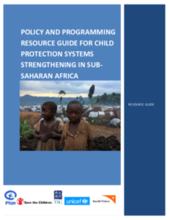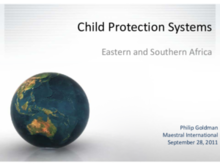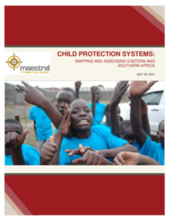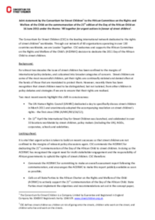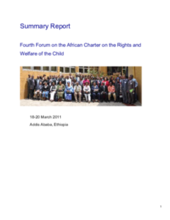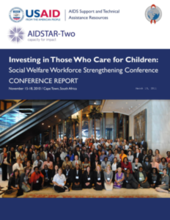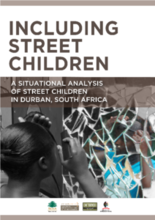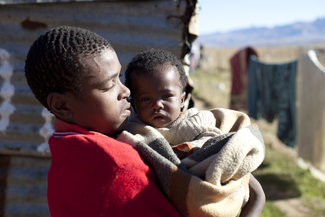

Displaying 441 - 450 of 575
This Resource Guide aims to be a user-friendly and manageable document designed to provide an overview of the current system strengthening approaches, along with a series of resources and tools available to support systems strengthening in child protection.
This presentation describes the mapping of the child protection system in Eastern and Southern Africa.
This report outlines the global context that the Eastern and Southern Africa Region (ESAR) is operating within, with respect to child protection.
Joint statement by the Consortium for Street Children to the African Committee on the Rights and Welfare of the Child on Day of African Child Theme: All Together for Street Children
The following recommendations were made to the African Committee of Experts on the Rights and Welfare of the Child in relation to children without appropriate care.
This Source Book is a practical guide for service providers working with children in Malawim specifically in psychosocial support services to orphans and other vulnerable children
An organization called Door of Hope has offered a “baby bin,” where parents can anonymously drop off babies, in Johannesburg since 1999, says this article from BBC News.
This Conference explored a range of workforce development strategies, including strategies for planning, training, and supporting the workforce incorporating lessons learned from Health Systems Strengthening and Human Resources for Health Initiatives as well as other human and institutional capacity building and training efforts.
Street Action and the Centre of African Studies has launched Including Street Children: A situational Analysis of Street Children, the first report of its kind documenting the physical and psychosocial health of street children in Durban, South Africa.
In 2004 the UN Children’s Fund (UNICEF) projected a grim future for Swaziland as a consequence of the world's highest HIV prevalence rates. Although the nation is struggling, it is managing to cope.

